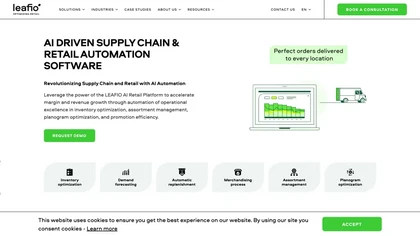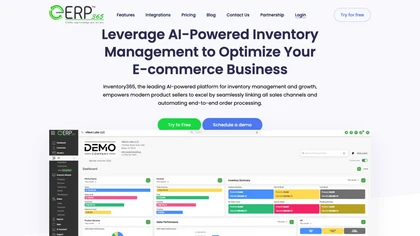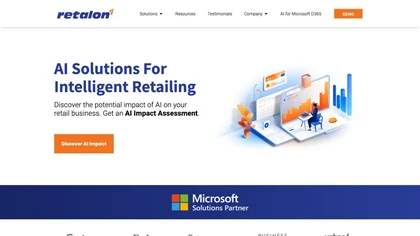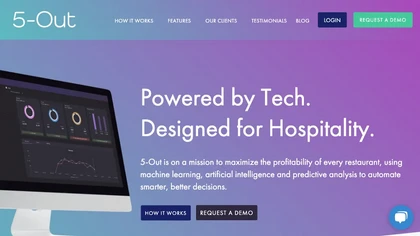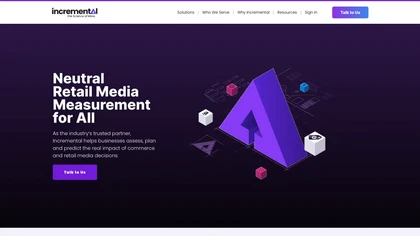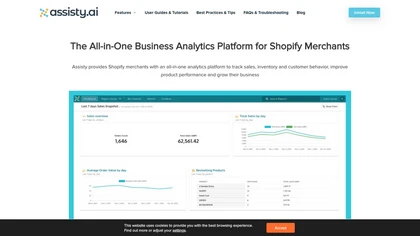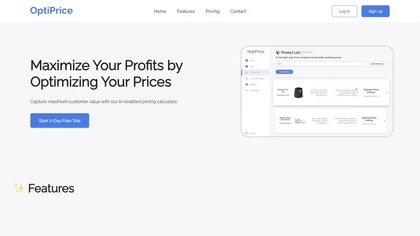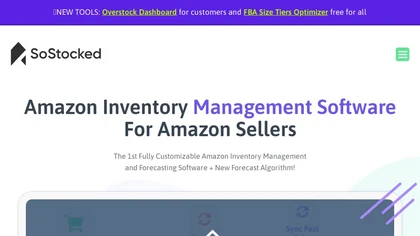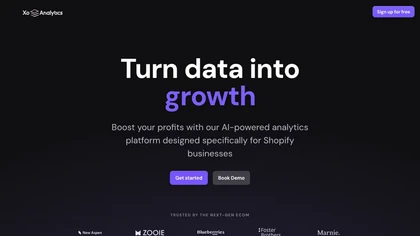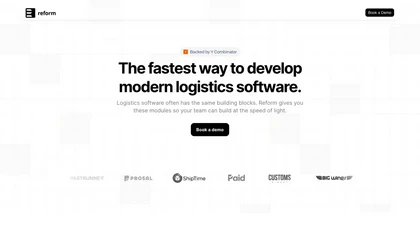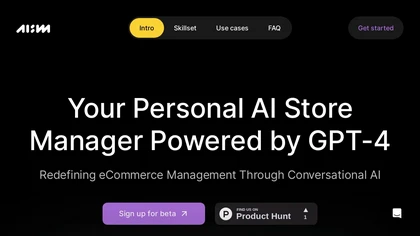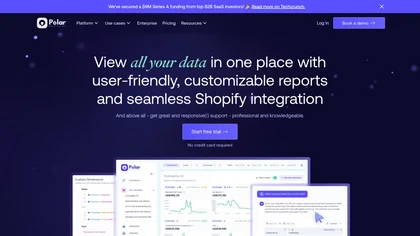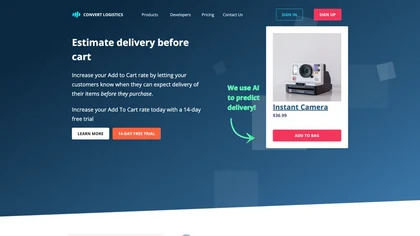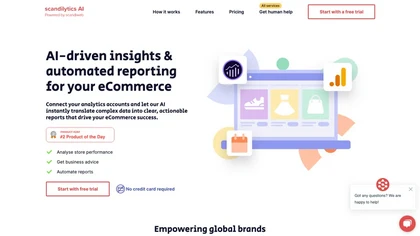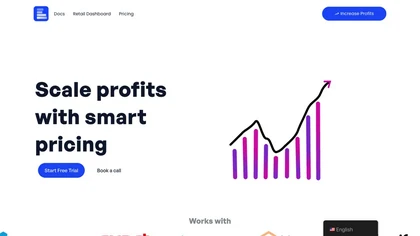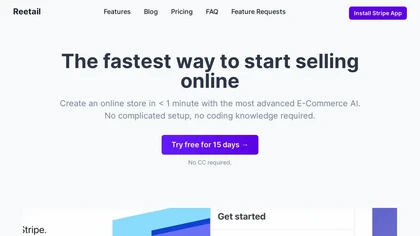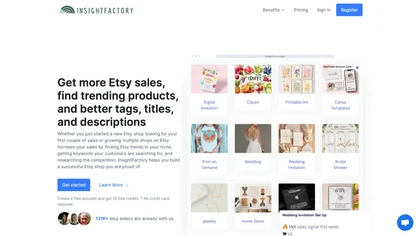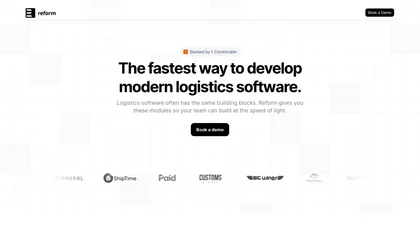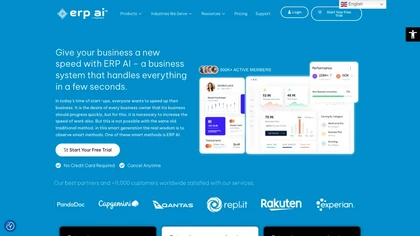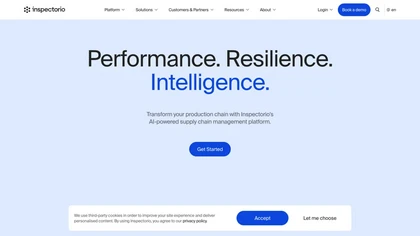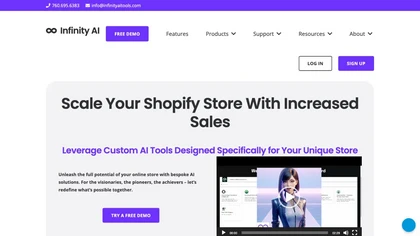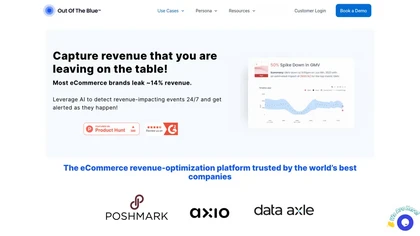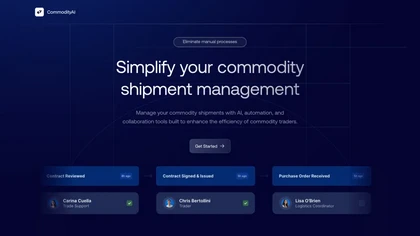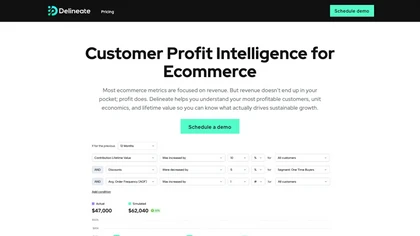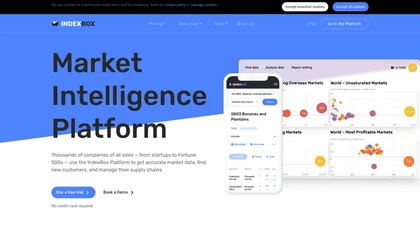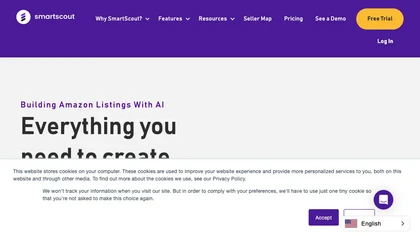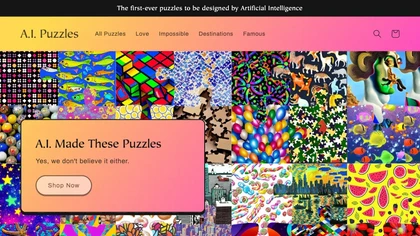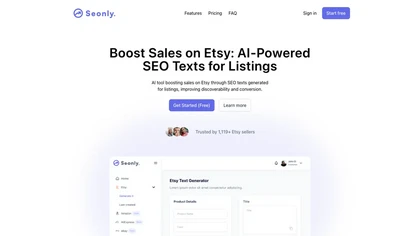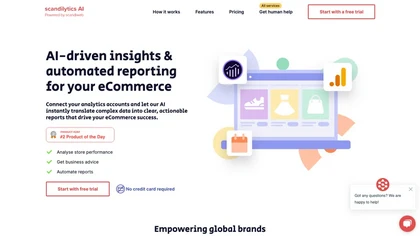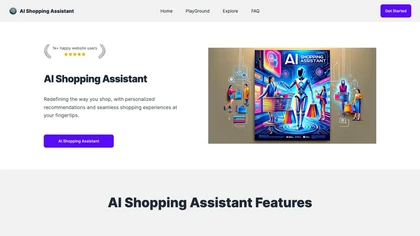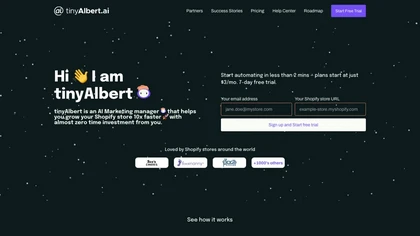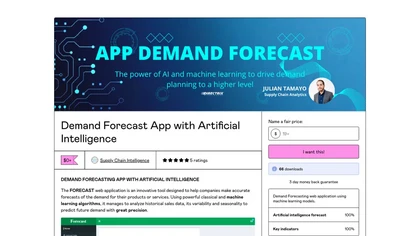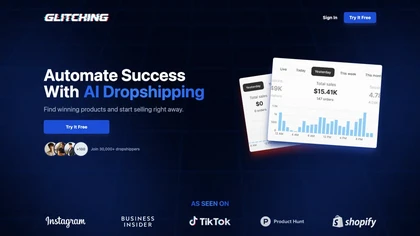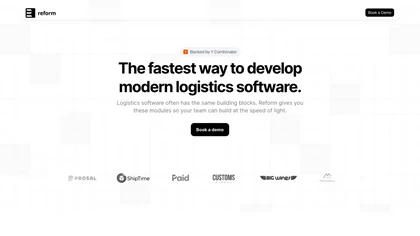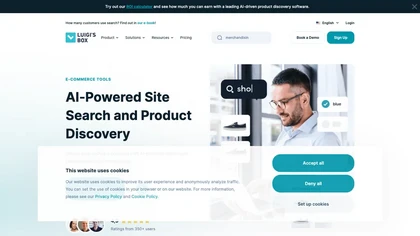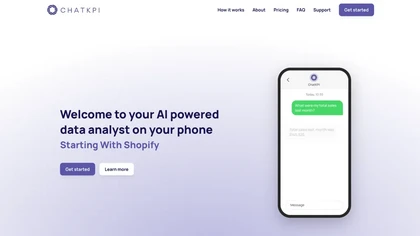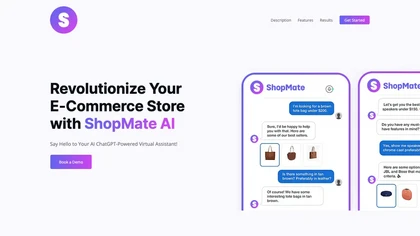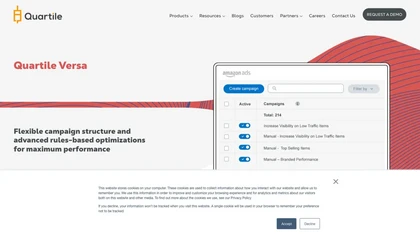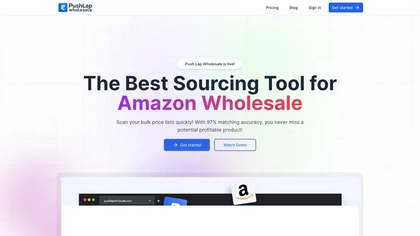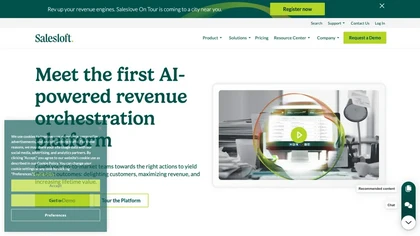AI use cases for Retail Operations
Generative AI can be applied in various applications for retail operations. Here are some examples to explore below for inspiration with AI tools to get you started with using AI in retail operations.
🛠️ 70 AI tools for Retail Operations
Explore a dynamic list of some of the most popular tools to get you started with various AI use cases and applications for Retail Operations to streamline your workflows and productivity today.
LEAFIO AI Retail features
- AI-driven supply chain and retail automation software
- Automation of inventory optimization, assortment management, planogram optimization, and promotion efficiency
- Features such as demand forecasting, automatic replenishment, and merchandising process optimization
- Caters to various industries including retail, grocery, convenience stores, pharmacies, liquor stores, etc.
- Comprehensive suite of AI-powered tools to streamline retail operations and drive profitable growth
Inventory365 features
- Real-Time Inventory Tracking
- Warehouse Management
- Multi-location Fulfillment
- AI-Powered Demand Prediction
- Seamless Integration
Standard Retail. features
- AI-powered retail analytics
- Comprehensive overview of store performance
- Leverage first-party data
- Uncover hidden trends and patterns
- Actionable recommendations
retalon.com features
- Predictive analytics
- Demand forecasting
- Merchandise planning
- Smart fulfillment
- Ecommerce operations
5-Out features
- Predicting sales
- Optimizing labor
- Optimizing purchasing
- Quick setup
- Getting started
Incremental ai features
- Retail media measurement
- Commerce analytics
- Portfolio management
- Predictive analytics
- Cross-channel commerce analytics
Skipped features
- Collaborative fulfillment platform
- Enables selling out-of-stock product variants
- Real-time e-commerce network
- Capturing sale opportunities easily
- Sharing of margins within merchant network
🔥
Create your account, save tools & get personal recommendations
Receive a weekly digest of our handpicked top tools.
Unsubscribe anytime
assisty.ai features
- Retail chatbot menu tool
- Generating inventory and sales reports
- Exporting data and creating custom dashboards
- User-friendly pre-built reports
- Advanced data drill-down and automation capabilities
OptiPrice features
- AI-enabled pricing calculator
- Competitor price monitoring
- Utilization of machine learning algorithms
- Pricing performance analytics
- Free 7-day trial
Manifest AI features
- Product recommendation
- Natural language processing
- Customization
- Purchase decision support
- Multilingual
GearChain features
- Real-time AI-powered inventory management
- No-code builder for customizing forms and generating barcode scans
- Blockchain technology for data integrity and transparency
- Role-based access control for security
- AI algorithms for auto-generating forms
SoStocked features
- Amazon inventory management
- Forecasting
- Customizable features
- Data migration
- Personalized onboarding support
XO Analytics features
- E-commerce analytics platform
- Next-gen e-commerce integrations
- Customizable alerts
- Real-time performance monitoring
- Personalized data-driven tips
Reform features
- Modular building blocks for customized solutions
- State-of-the-art multimodal AI models for logistics documentation
- Automation of data capture for various documents
- Seamless integration with universal transportation management systems (TMS) through a universal API
- Embeddable customer dashboards for real-time data insights
Topzeal features
- Product creation
- Sales amplification
- Marketing copy generation
- Full-link data asset deposition management
- Intelligent label classification management
AI Store Manager features
- Ecommerce management
- Gpt-4 technology
- Conversational ai assistant
- Analytical and reporting capabilities
- Product catalog management
- Order management
- Customer information management
- Functionalities and automations optimization
- Checkout processes
- Staff member addition
- Gdpr and ccpa compliance
Potions features
- Personalized product recommendations
- Smart sorting of list pages
- Cookie-free personalization technology
- Seamless integration
- Real-time performance monitoring
Sku Fetch features
- Data fetching from multiple suppliers
- Support for popular marketplaces
- Keyword finder and product UPC addition
- Competition analysis and reviews integration
- Leverages OpenAI capabilities for rewriting and summarizing
Mom shop app features
- AI-powered features
- Streamlined e-commerce
- Effective service management
- AI-generated content
- Simplified order management
Polar features
- 1-click integrations
- Custom reporting dashboards
- Predictive forecasts
- Smart alerts and insights
- First-party attribution
Covonyx features
- Estimates e-commerce shipping and fulfillment arrival dates
- Determines end users' zip codes for precise location detection
- Estimates tax rate in the cart based on user's location
- Provides API for developers to customize shipping estimates
- Enables fulfillment prioritization based on business days, holidays, warehouse locations, and product inventory
Data Analyst AI features
- Data Analyst AI
- Automated reporting
- Tailored marketing strategies
- Streamlined marketing efforts
- Secure data processing
Prycing features
- Smart pricing solutions
- Competitors' pricing insights
- Product competitiveness overview
- Price comparison feature
- Automatic price adjustment
V-retail features
- Simulates in-store personalized experiences online
- Engages potential customers through live chat, voice, video calls, and remote assistance
- Provides real-time conversations
- Offers advanced analytics insights
- Seamlessly integrates with existing websites across devices and operating systems
GoWit features
- Omnichannel advertising platform
- AI-powered bidding engine
- Integration of self-service and white-label features
- Activation of first-party data for customer insights
- Precise targeting and personalized campaigns
Reetail features
- E-commerce
- No-code platform
- Product descriptions
- Marketing
- Checkout
- Cart management
- Fraud detection
- Physical products
- Digital products
- 135+ currencies
Convictional features
- Streamline onboarding vendors
- Standardize product content for retailers
- Reduce merchandising tasks by up to 75%
- Automated vendor payouts through integrated systems like Stripe
- Supports a range of integration methods with major ecommerce platforms like Shopify and Magento 2
Marketplan features
- Marketing plan management
- Campaign projection
- Collaboration
InsightFactory features
- Trending search term identification
- Keyword research
- Competition analysis
- Sales tracking
- Automated title and description generation
Testmarket Analytics INC features
- Keyword analysis for product listing optimization
- Multi-platform sales-boosting services
- Google ads management
- Advertising optimization services
- Campaign creation support
RestoGPT features
- Create customized online ordering platform
- Seamless integration with pos systems, sales platforms, and delivery services
- Automated order management, sales, and deliveries
- Efficient online ordering experience for customers
- Simplify online ordering process
Unfig features
- Automated data capture from various logistics documents
- Universal TMS integrations for seamless connectivity
- Embeddable customer dashboards for real-time data insights
- Scraping information from numerous sources for visibility into logistics data
- Streamlining logistics operations with unprecedented speed and efficiency
SellMate features
- Cross-listing on major e-commerce platforms
- AI-generated descriptions
- Advanced analytics for data-driven decisions
- AI-powered pricing insights
- Real-time analytics insights
PriceGPT features
- AI-powered tool
- Provides pricing insights
- Optimizes pricing strategies
- Saves time
- Revolutionizes pricing approach
bodify.io features
- Predictive analytics
- Improve return rates
- Increase average cart value
- Boost shopper loyalty
MEJ ERP AI features
- Intelligent automation
- Data-driven insights
- Real-time analytics
- Predictive forecasting
- Seamless integration capabilities
inspectorio.com features
- AI-powered supply chain management platform
- Utilization of innovative technologies like AI
- Digitizes and connects supply chain processes within a single tool
- Enables intelligent analysis of the entire ecosystem
- Reduces production chain risks through advanced analytics
Shopifinity Engine™ features
- Utilizes Shopifinity Engine™
- Automates tasks like content creation and sales support
- Personalized marketing campaigns based on detailed customer data
- Suresell AI for boosting sales
- ConsistentVoice for maintaining brand tone
Out Of The Blue features
- Real-time revenue-impacting event detection
- Identification of revenue leaks and issues
- Detection of revenue-impacting infra errors and user engagement/navigation issues
- Transition from manual monitoring to AI-driven proactive approach
- Optimizing ad spends and customer communication
CommodityAI features
- Automated shipment processes
- Auto-generated shipping nominations
- Real-time shipment tracking
- AI-driven performance analytics
- Smart data extraction
SellMate AI features
- AI-powered cross-listing across major e-commerce platforms like Amazon and eBay
- Optimizes titles and generates AI-driven descriptions
- Provides advanced analytics for data-driven decisions
- Automates manual tasks and streamlines workflows
- Offers real-time analytics and data-driven strategies
Delineate features
- Unified analytics for financial, customer, product, and marketing insights
- AI predictive lead scoring
- Customer analytics, cohort analysis, customer lifecycle analysis, and customer segments
- Scenario simulation
- Data integration from various sources
IndexBox
5IndexBox features
- Access to accurate market data
- User-friendly interface for quick generation of market reports
- Predictive modeling for forecasting market trends
- Machine learning capabilities
- Data integrity through cross-checking from multiple sources
sellesta.com features
- PPC strategy management
- Optimizing ads based on data-driven insights
- Enhanced product recommendations
- Content improvement
- Real-time competitor insights
Marketer features
- AI-generated price optimization
- Lead generation tools
- Targeted marketing strategies
- Visualization of new build projects
- Automation of manual processes
SmartScout features
- Optimize listings
- Create listings
- Easy-to-use
- Minutes
AI Puzzles features
- Ecommerce
- Online
- Store
- Shopping carts
- Inventory management
Seonly features
- Automatic keyword optimization
- Title and description generation
- Trend monitoring
- Targeted text creation
- SEO algorithm and ranking management
Smartersales features
- Integration with zoom, teams, and meet
- Automated crm data entry
- Instant personalized feedback
- Detailed performance dashboards and summarized email reports
- Customizable experience
Scandilytics features
- Advanced analytics for store performance insights
- Business advice based on data analysis
- Automated reporting processes
- Connection with analytics accounts for data translation
- AI-based trend analysis and opportunity identification
AIShoppingAssistant features
- Personalized recommendations
- Price comparison alerts
- Virtual try-on with augmented reality
- Voice-text interaction
- Enhanced shopping journey
TinyAlbert features
- Automated tool for boosting marketing strategies
- Streamlines key marketing activities using AI playbooks
- Expert functionalities in copywriting, email marketing, and delivery
- Saves valuable hours weekly by replacing the need for an email service provider or marketing manager
- Ideal for solopreneurs, small teams, and established businesses
Demand Forecast features
- Utilizes classical machine learning algorithms
- Allows uploading data sets from Excel
- Automatically selects the best model for each product
- Provides clear visualizations and interactive graphs for demand predictions
- Includes features like historical data analysis, outlier detection, model competition algorithms, and KPI forecast systems
Dairytech.ai features
- milkround automation
- automatic payment collection
- stock reconciliation
- online order management
- customer communication
ImprintNext features
- Supplier catalog integration
- Back-office management
- Sales and marketing tools
- Production automation capabilities
- Dropship and fulfillment services
Linkable features
- User-friendly interface
- Analytics and automation integration
- Customization with themes and branding options
- Email collection
- Payment acceptance via Stripe
Glitching features
- Identify profitable products efficiently
- Quick start-to-finish automation
- Optimize Shopify store settings for increased conversion rates
- Learn secrets of creating compelling ads
- AI-generated product page feature
Intellimize features
- Personalized marketing
- Website optimization
- Machine learning
- Conversion acceleration
- Faster results
Reform features
- Modular building blocks for rapid customization
- Automated data extraction from various documents
- Seamless integration with universal TMS platforms
- Real-time visibility into logistics data
- Efficient data scraping from multiple sources
Humming features
- QR code integration across various platforms
- Shoppable QR codes for selling products
- Facilitation of retargeting across advertising channels and devices
- Building lookalike audiences
- Accessing millions of websites, podcasts, apps, and TV shows in one place
Luigi's Box features
- AI-powered search functionality
- Advanced CEE language support
- API integration for data exchange
- Dynamic search filters for relevant results
- Personalized product recommendations
AstridAI features
- Keyword research and analysis
- Content optimization
- SEO auditing
- Real-time suggestions
- Detailed reports
ChatKPI features
- Personalized business metrics and insights
- Sales trend tracking
- Identification of popular products
- Understanding customer behavior
- Real-time insights
ShopMate features
- AI ChatGPT-powered virtual assistant
- Personalizes recommendations
- Upsells/cross-sells
- Engages customers in real-time
- Available 24/7 for customer inquiries
Localposh features
- Natural language input
- Concierge feature
- Integration with Google Calendar
- Search using images
- Local businesses connection
Siesta features
- Personalized marketing guide generation
- Survey completion in 15 minutes
- Tailored to unique business needs
- Step-by-step instructions
- Convenient to-do list for tracking progress
PPSPY features
- Product research for Shopify dropshipping
- AI-powered tool for uncovering top-selling products
- Real-time sales data tracking
- Competitor performance prediction
- Market research features like revenue filtering and traffic analysis
Quartile features
- Patented optimization technologies
- Machine learning algorithms
- Flexible campaign structures
- Rules-based optimizations
- Unified campaign reporting
Push Lap Wholesale features
- 97% matching accuracy
- Analyze thousands of products in minutes
- Bulk upload lists of suppliers for product search
- Accurate profit calculations and demand estimation
- Powerful sorting and filtering options
live-salesloft-v2.pantheonsite.io features
- Generative AI for Conversations
- Enhanced Conversations analytics
- Forecast segmentation based on Alternate Amount field
- Bulk reschedule actions for Cadence
- Automated call recording API for secure sharing
